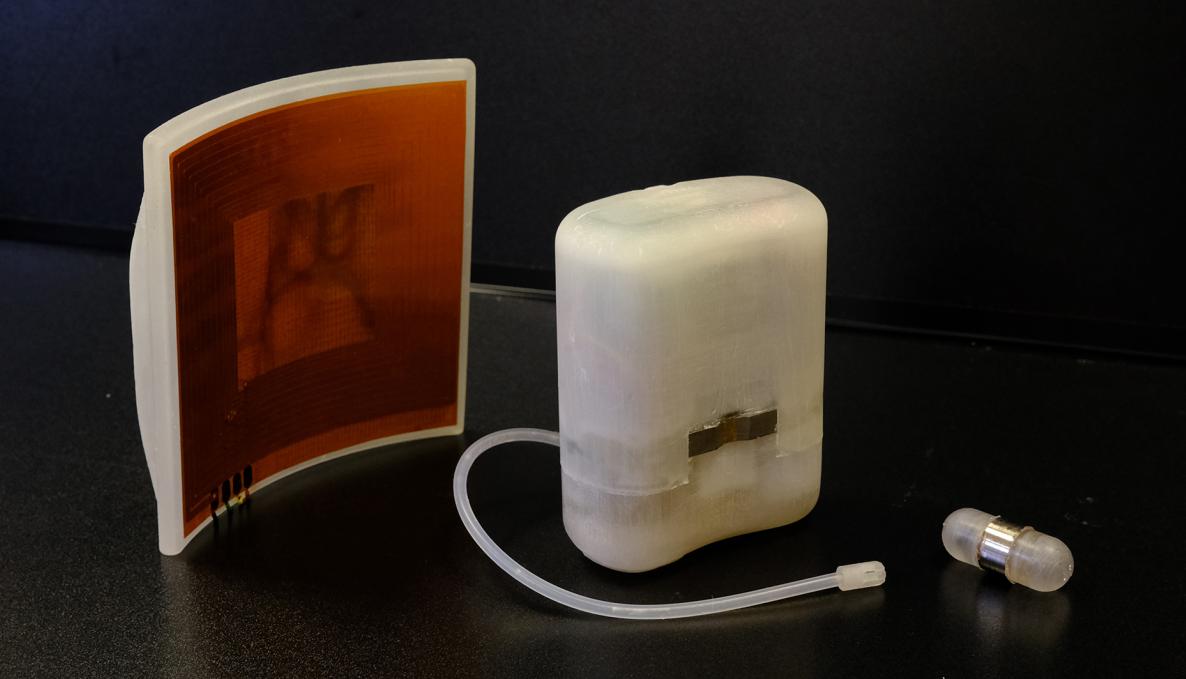IMPLANTABLE ROBOTS AND MAGNETIC CAPSULES FOR THE DIABETES TREATMENT. A study published in Science Robotics journal proposes an implantable robotic system able to dock magnetic capsules inside the human body and transfer insulin

A study published in Science Robotics journal presents a robotic system for diabetes treatment. The system is unique in the state of the art and includes a small implantable robot acting as an infusion system placed in the abdominal cavity and interfaced with the intestine and also a magnetic capsule to be docked by the implantable robot and able to refill the reservoir with insulin. The study stems out of the scientific collaboration between The BioRobotics Institute of Scuola Superiore Sant'Anna, University of Pisa and Azienda Ospedaliero-Universitaria Pisana (AOUP), and opens new venues in the treatment of a disease that affects millions of people in the world. The system proposes an alternative to traditional therapeutic strategies. This would avoid using access ports, needles and syringes and to improve significantly patients’ quality of life, especially for those who have to take insulin several times a day.
How does it work?
The robot is surgically implanted in the abdominal cavity and interfaced with the intestine. The implanted robot acts as a precise insulin infusion system and has the characteristics of a pump capable of releasing insulin with high accuracy. When the reservoir is almost empty, approximately every 1-2 weeks, the patient is invited to swallow a magnetic pill. The pill is passively transported along the gastrointestinal system until reaching the implant, where it is magnetically docked. A dedicated mechanism enables to transfer the insulin to the reservoir before the natural excretion of the capsule.
"This system - explains Veronica Iacovacci, post-doc of The BioRobotics Institute and first author of the study - constitutes a significant step forward in the field of totally implantable robotic systems and devices for the controlled release of drugs. If combined with a glucose sensor and a control algorithm, the robotic device might enable in the future to develop the first fully implantable artificial pancreas and to treat several chronic pathologies".
"Our research team deals with robotics for therapy and minimally invasive surgery - explains Arianna Menciassi vice-rector of Scuola Superiore Sant’Anna and principal investigator of Surgical Robotics and Allied Technologies - We have developed capsules for gastrointestinal monitoring and magnetic systems with remote control in surgery".
DETAILS
V. Iacovacci, I. Tamadon, E. F. Kauffmann, S. Pane, V. Simoni, L. Marziale, M. Aragona, L. Cobuccio, M. Chiarugi, P. Dario, S. Del Prato, L. Ricotti, F. Vistoli, A. Menciassi, A fully implantable device for intraperitoneal drug delivery refilled by ingestible capsules, Science Robotics 6, eabh3328 (2021);



